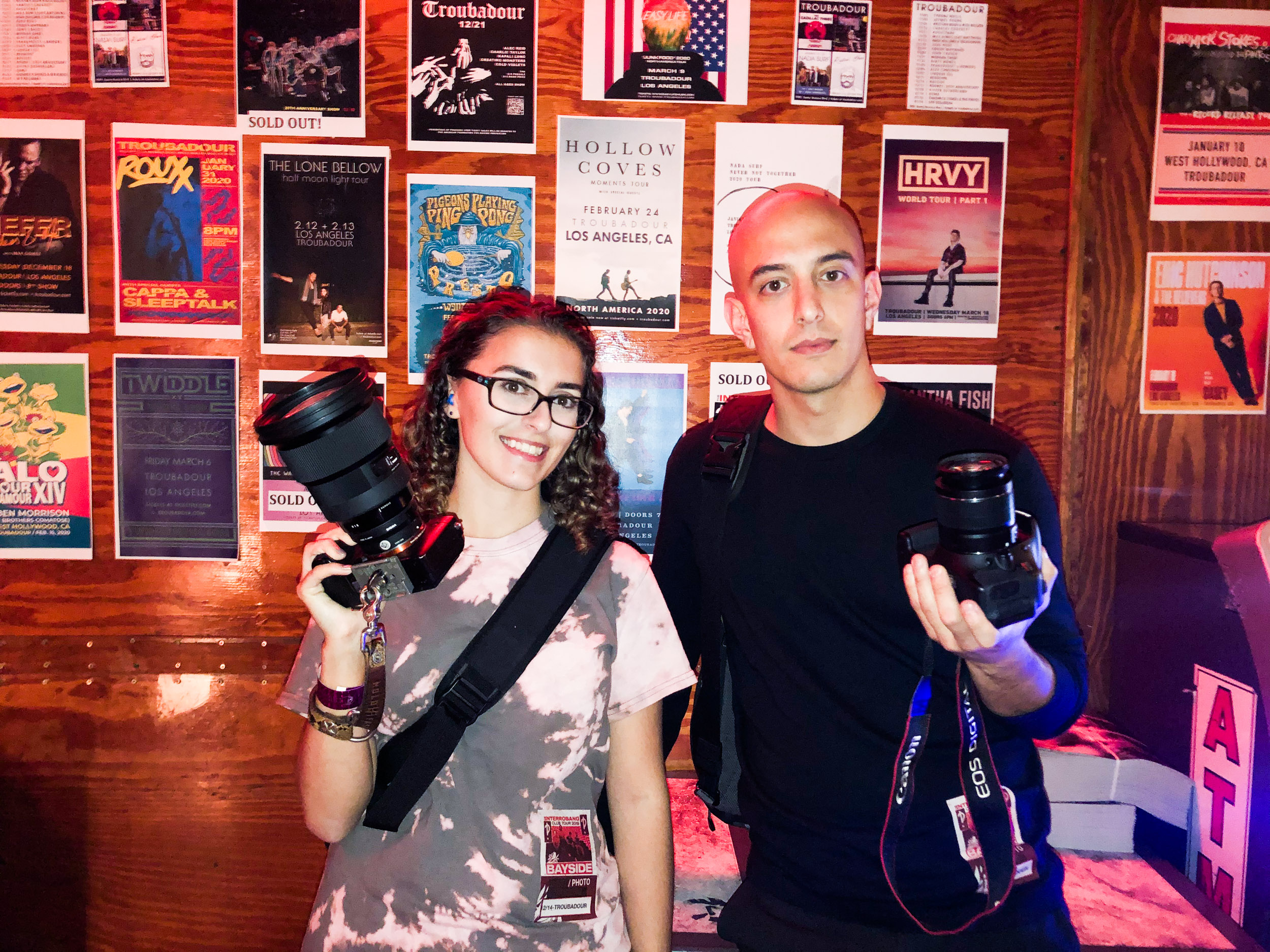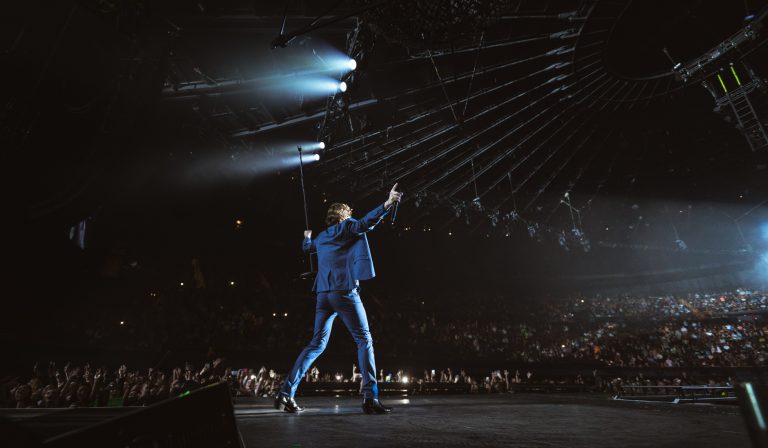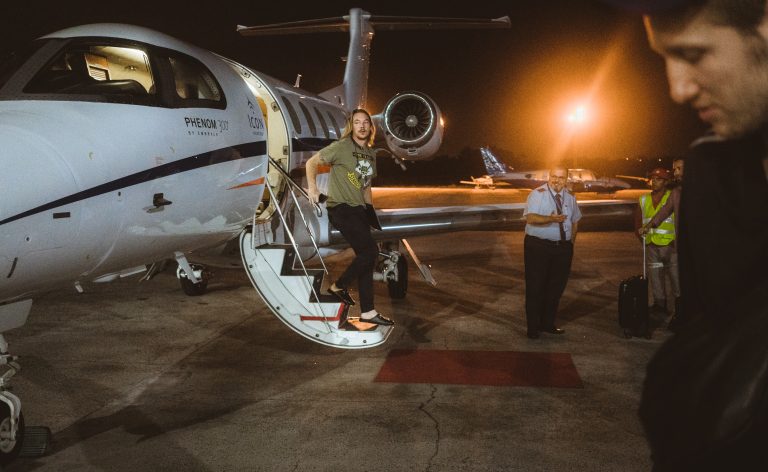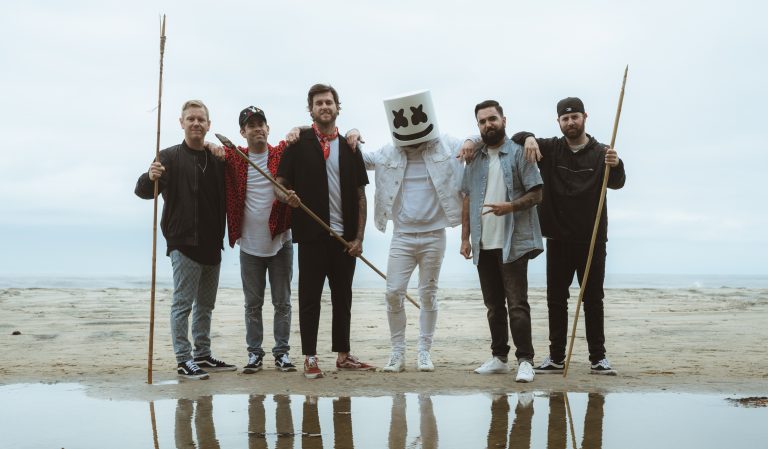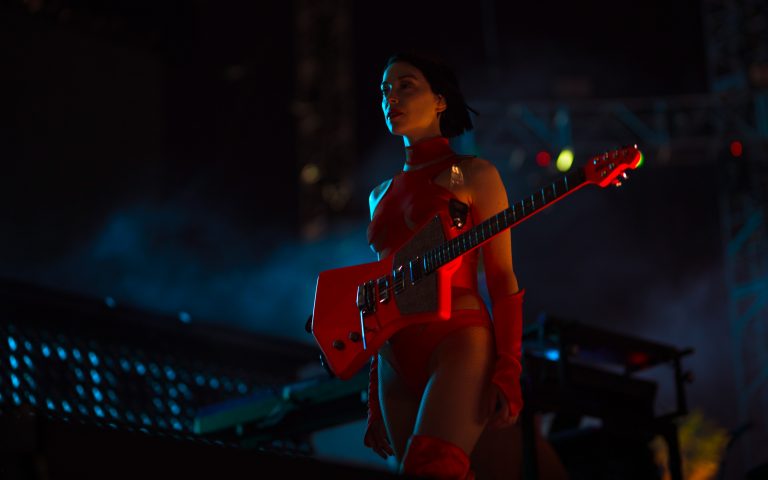We all start somewhere. Some would say the hardest part of photography, is just getting started. You have to get your camera, then you have to get your lenses – which really start to add up. So we get a cheap camera – well, relatively cheap. Five hundred for just the body and another couple hundred for the lens – that’s a month or rent. Or if you are in high school that is an inconceivable amount of cash. I got my first *real* camera by taking out money from my college fund. I was 16. Before that, I had just borrowed a camera from school. So does gear matter for photography? And more specifically, concert photography?
It was hard to make nice photos with a Canon S2 IS, but it wasn’t impossible. And I only know it was hard because I know what it is like to shoot with the cameras I have now. At the time, I couldn’t even conceive how a camera could possibly get any better. I didn’t have enough of an understanding of photography. If you gave me a camera that cost 10x as much, I promise you my images wouldn’t improve on any level other than literal image quality because of the high megapixels. So that is kind of the point I am making, but let’s keep digging here.
Let’s Ask The Twitter World
I did what I love to do and asked this question on twitter. It’s a good way for me to see what people think.
Why you do think so many photographers say that *Gear Does Not Matter*?
— Adam Elmakias (@elmakias) December 21, 2019
Looking back I feel like I should have rephrased this question. Some people told me why photographers say “Gear Does Not Matter” and some told me their own opinion on what degree they feel gear matters/doesn’t matter. The responses were all over the board – which is what I am here for. Thanks to you guys for your contribution
Because I’ve seen people with expensive gear take horrible shots and not know how to work their equipment. I’ve also seen people with an iphone take great photos. Having the eye for for the shot and composition is what matters.
— Alyssa Sharkpelli 🦈 (@iamscarpelli) December 22, 2019
To me it’s ALL about the editing🤷🏼♀️
— ⚡️Kirsten Lynn Smith⚡️ (@photosbyksmith) December 21, 2019
They have the experience to know that it matters more what’s in front of it. The only opposition I support is low light. Then gear matters, but mostly the lens.
— Matt Leitholt (@mattleitholt) December 22, 2019
It doesn’t matter. I’ve seen pinhole photos that are masterpieces. If you know how to really photograph (as opposed to just pressing buttons) it is your skill that matters. Sure better gear will help you achieve a commercial look but that’s meaningless without talent.
— Mx Luna B. (@mxlunaphoto) December 21, 2019
Gear Doesn’t Matter, Now Let Me Tell You About My Gear
How does your gear matter? I would argue that in this case, it is because it is a $50 camera that Josiah was able to make this image. Maybe a big 5k camera would have messed with his subject or created him another moment. So even though his point was to say gear doesn’t matter, I think this shows a scenario where it really can matter. Even if I am being overly literal. Also, hi Josiah.
I took this on a used canon coolpix I got on eBay for $50. Gear doesn’t really matter. pic.twitter.com/pwsMwzFygG
— Josiah Van Dien (@JosiahVanDien) December 25, 2019
Obviously, the answer is somewhere in the middle, and it really depends on what type of photography you are doing. After all, if you are taking portraits, maybe a film camera is best – and the gear matters because of how it makes the image look.
I wouldnt necessarily say gear does not matter. My opinion is that skill comes first and gear comes second. Obviously you need to know how to use your gear. But also not having certain things can limit you and hold you back from improving and learning new things.
— Louis Vuitton MICROWAVE® (@_tj_martinez_) December 22, 2019
cause better gear does not mean better photos. composition and creativity is what really makes a photo. yes, gear does matter because there will be a point where your equipment cannot mechanically handle what you want.
— hingboy (@_fixedatzero) December 21, 2019
Why I Say “Gear Doesn’t Matter”
Most of the time it doesn’t. Sometimes, it really does. So why do people say that it doesn’t? Well, it’s because people (myself included) know that you can work on all of the important parts of photography, even with a sub-optimal camera. It would be a shame if people never gave themselves a chance because everyone that they look up to kept telling them their camera sucked, and their lenses weren’t sharp enough. There are so many other skills you can work on that will improve your photography drastically, relative to simply purchasing a new lens.
What You Can Work On
Regardless of your camera and lens, here are all the things you can always work on.
- Creating Your Composition
- Framing Your Subject
- Learning Your Camera
- Your Overall Speed
- Adjusting Your Settings
- Making Contacts & Networking
- Photograph New Clients
- Post Processing
- File Management
Just Start Shooting
For as long as I can remember I have told people don’t worry about your camera- just get out there and start shooting. A lot of the people who reach out to me are not concert photographers – I mean they have an interest in it, but it is a rather difficult type of photography to just get a start in. Usually, people become a bit more advanced than a beginner photographer, and then audible to a concert photography focus. This is because you can’t get the amount of experience you need with your camera, by just shooting the concerts. There just aren’t enough concerts to get your 10,000 hours in.
So When Does Gear Matter?
Gear matters once you start noticing areas of your skillset that you need to improve are simply out of your control. So we aren’t talking about your composition etc . You can change your camera, get a new lens, it doesn’t matter. Your composition abilities – will stay at the level they are at. We are talking about things like…
- Focus Speed
- Sensor Quality/ Low Light Capabilities
- Burst Speed
These things are all out of your control. Coincidentally enough, they are all the things that make being a better live music concert photographer, easier. So if the rule “gear doesn’t matter” applied to most types of photography, I would say concert photography is an exception the that rule – at least on the professional level. The shows actually get easier to shoot when the shows get bigger on a technical level. This means the lighting gets brighter, there is more of it, and the stages get easier to navigate from the photo pit etc.
The reason I say on a professional level is that you can still do concert photography, a lot of it – with an entry-level DSLR. However, the quality of the image you get from your shots will only get you so far. You will need to upgrade eventually. I guess in most types of photography, as you become better at it you will want to upgrade. The difference here is in concert photography, you will need to. You could kind of cheat – so maybe just grab images that do not require a fast reaction time, or maybe you wait until the lights are really bright. But ideally, you need a camera that can grab fast moments in low light with incredible precision. These things almost always improve as the price of a camera improves. It would be hard to get that out of a Canon T3i.
How do I know this? Well, I tried it.
Let’s Test It Out
I tweeted out the other day. Help me my worldwide friends.
Looking for someone in Los Angeles with a Canon Rebel to shoot a concert with me tonight.
— Adam Elmakias (@elmakias) December 14, 2019
Marisa, whom I have never met before – responded to me. I love when stuff just works out. We were met up and working within the day. I love Los Angeles for things like this.
I was going to see my roommate’s band that night at The Troubadour in West Hollywood. Andrew is not in the band, he manages them. I told him my idea and said hell yea. I should have him tell other people my ideas more often cause he always makes them sound so much cooler than I think they are. Anyway, he was down with my idea and cleared me and Marisa to shoot that night.
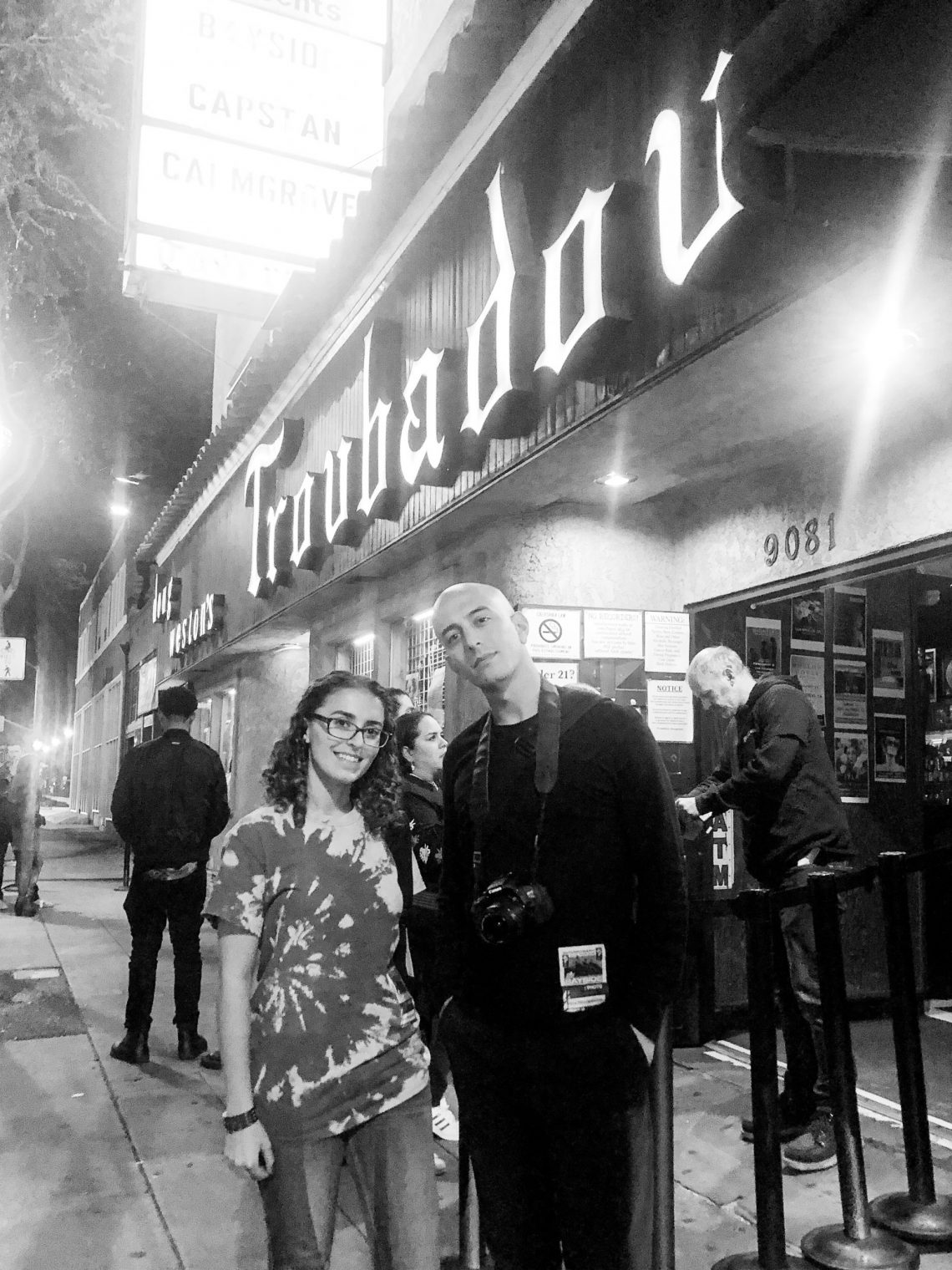
We Traded Cameras For The Night
I gave her my Sony a7 III with a Sigma 105mm f/1.4 Art and a Sigma 14-24mm f/2.8 Art – a total of about $5500 dollars. In return, she gave me her Canon T3i and the kit lens – a Canon 18-55mm f/3.5-5.6 IS II. I think in total her camera was worth less than $500. So safe to say, she came out on top of this exchange. We took some time to teach each other our camera systems. She had never used a Sony and I haven’t shot with the rebel series for over 10 years. So I needed a pretty lengthy refresher.
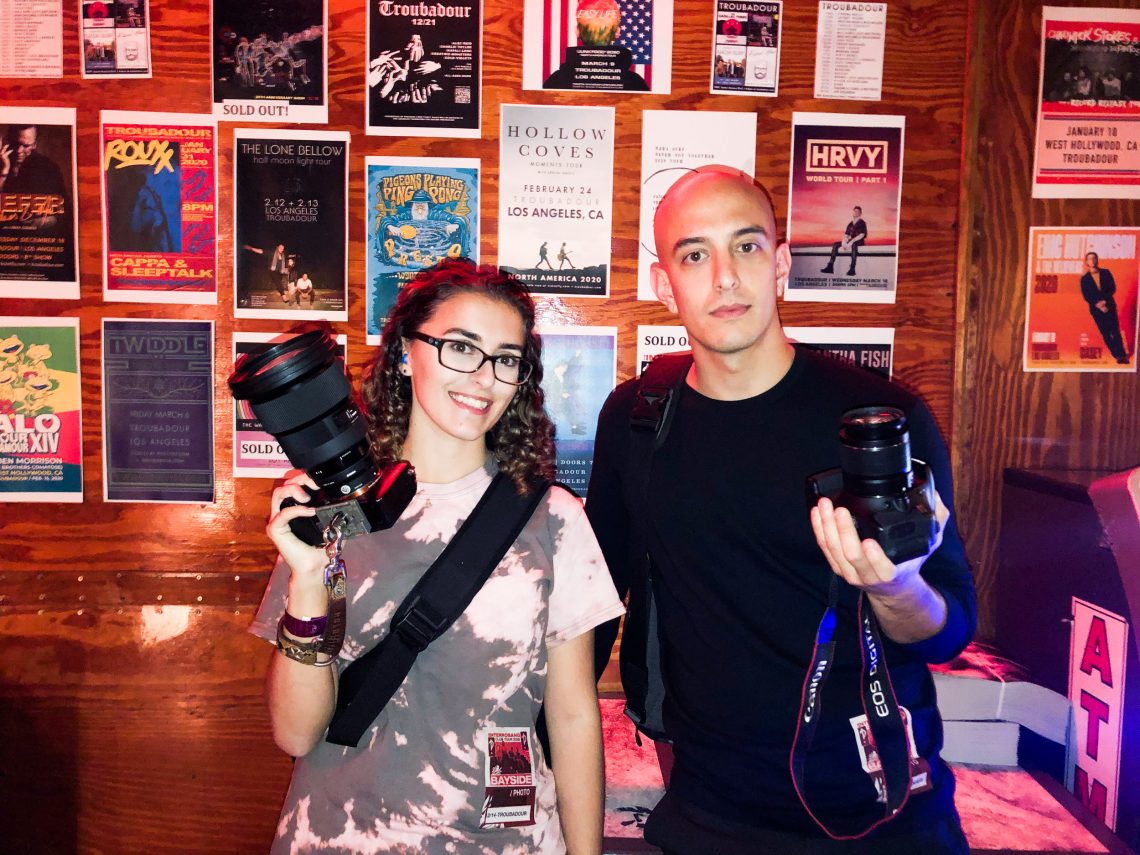
Let me just reiterate there is nothing wrong with Marisa’s camera. It’s actually an amazing camera. I would say her camera matches where she is at in her career, and mine matches mine. We have different jobs so we need different tools – and these ones get the job done. She showed me a lot of the portrait work she had done with the same camera, and it looked amazing. However, concert photography with the Canon T3i – that is a different story.
Shooting A Concert With A Canon T3i
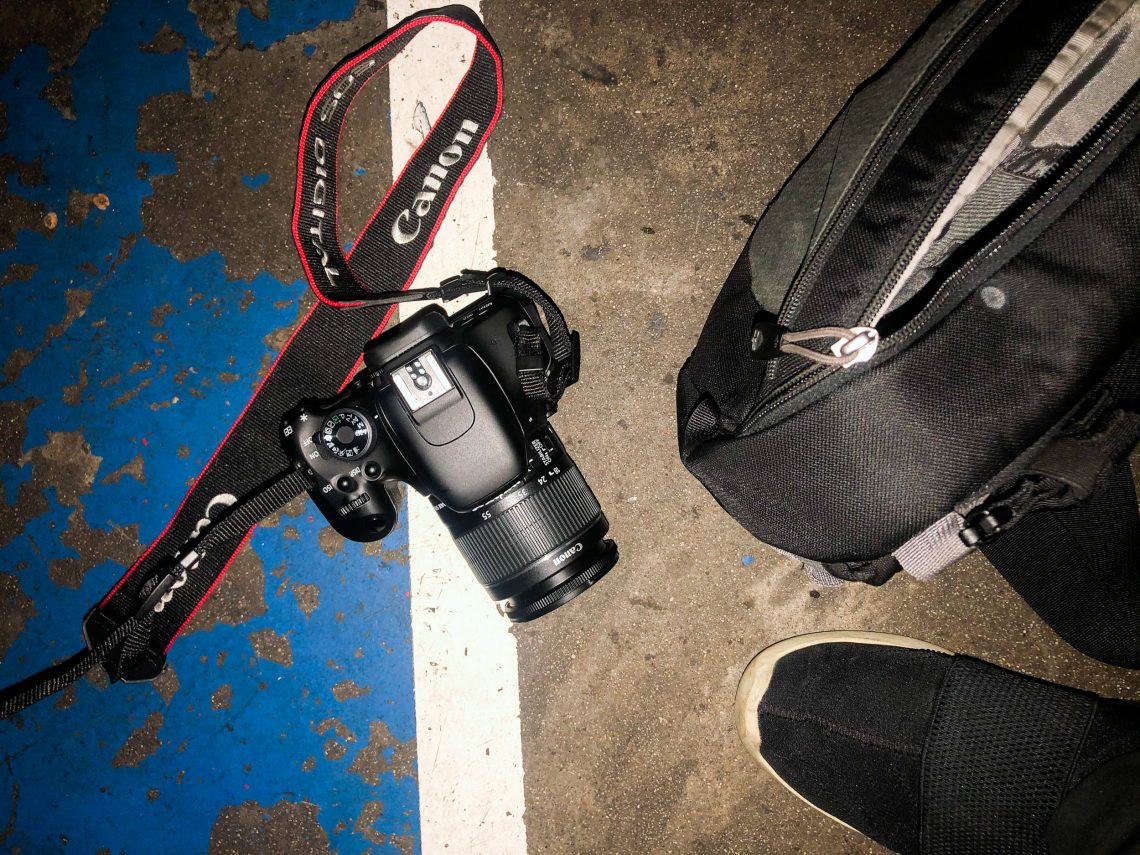
Just to reiterate, all the things that make your camera more expensive, are also the same things that help us shoot a concert live.
- Focus Speed
- Sensor Quality/ Low Light Capabilities
- Burst Speed
I knew what my experience was going to be like going into the shoot. I mean, it wasn’t a secret. This is going to be much harder than shooting a concert with my Sony. But how much harder? As a side note, I would say this is a very average venue. It’s not a crappy club, or an amazing ballroom – it is somewhere in between. A few lights, a couple of hundred people, and a bar somewhere in the corner. Anyway, here is what I learned that night.
View Full Side By Side Comparison
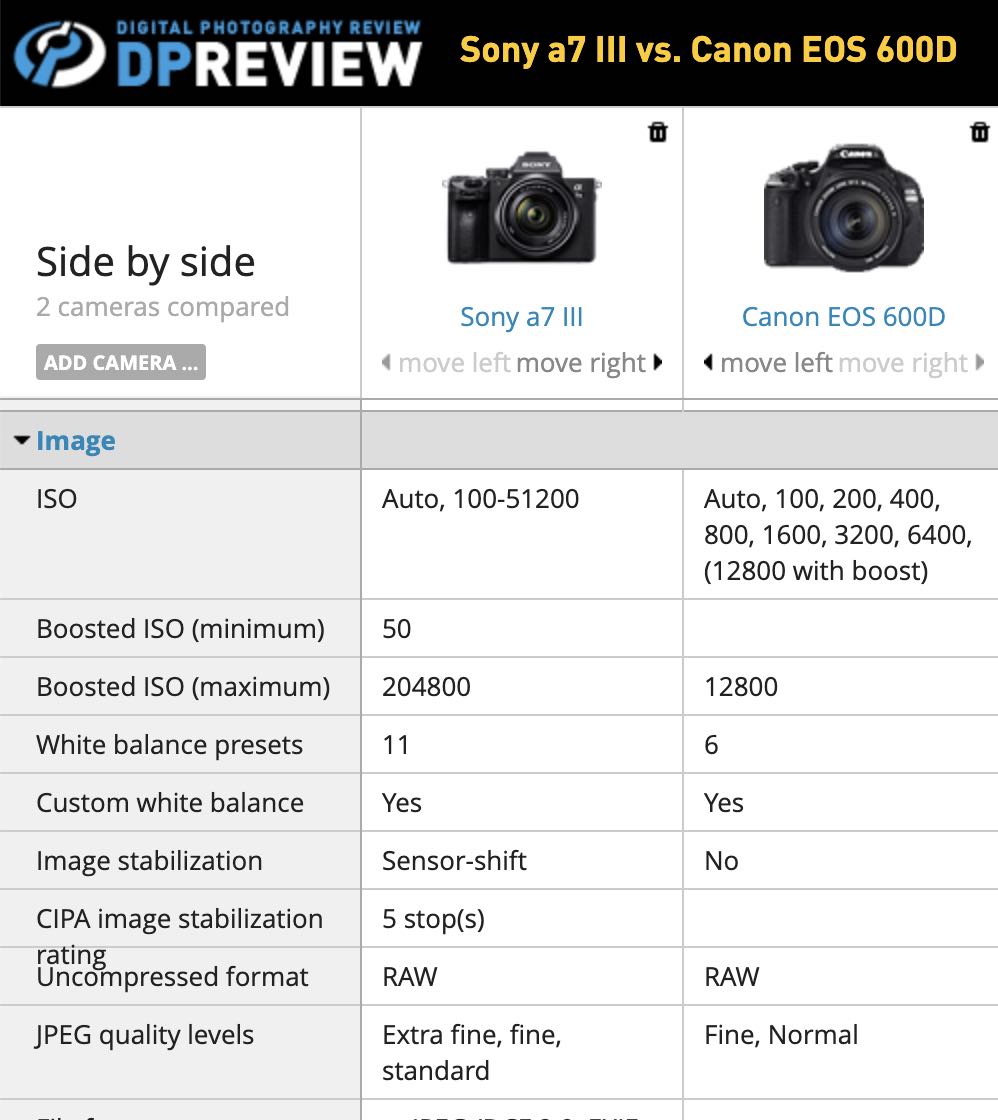
Focus Speed
This is a big deal. What I am talking about here is how fast your camera sees its target, focuses on it, and allows you to take a sharp image. This has to do with focus points, how good it is at *seeing* your subject, and how it tracks your subject. If my sony was 10/10 – the Canon was probably somewhere around 1.5. I had to plan far ahead of time where I wanted to take my photo, and what of. I would focus, get the correct exposure, and then wait for something to happen in that space. I much rather I am able to constantly be scanning the stage for my shot, but I kinda had to wait for it to come to me with this camera.
Sensor Quality
This has to do with how well the camera uses the light. Generally, the higher the ISO can be pushed, the better the sensor. The Canon has a max of 6400, while the Sony goes up to 51,200. Big difference and boy does it show. I was shooting all the way up and the noise/grain it added to my image was similar to a sandstorm. I would compensate by lowering my shutter speed as much as I could, but too much motion blur just equals a blurry image. You have to draw the line somewhere.
Burst Speed
The burst speed isn’t that important to me most of the time. I think this is because up until recently – all my cameras have been pretty slow. not as slow as the Canon, but slow enough that holding down my shutter when someone jumps in the air would still only get me 1-2 shots of them in the air. With my Sony a7 III shooting at 10.00 fps I am able to slam it down a bit more reliably. The Canon T3i shoots at 3.7 fps and I only used it when taking a burst to try and get one image out of ten that didn’t have too much motion blur due to the low shutter speed I was shooting at.
Even if you did shoot with Burst on the Canon, the buffer would fill up so fast. The Canon T3i buffer was 3 RAW images and the Sony a7 III was 89 RAW images – anther massive difference.
Success Rate
Something important that Marisa brought to my attention was our success rate. So out of the 600 shots Marisa took, she had about 60 images she liked to pick from. I took 400 images, and I had…. four. I was in salvage mode. I was just taking the shots that were in focus and good quality. I couldn’t even begin to be more selective than that. This has obvious upsides when working with a client and wanting to provide options for them to pick from.
The Photographs
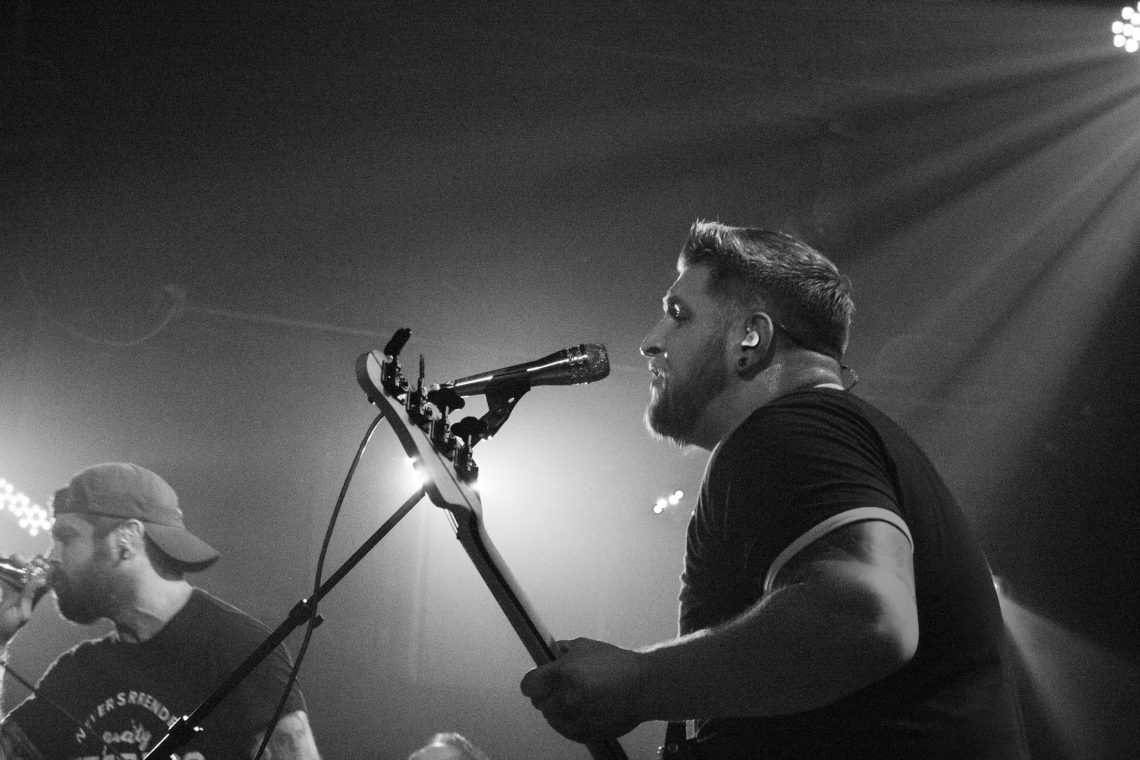
Capstan at The Troubadour 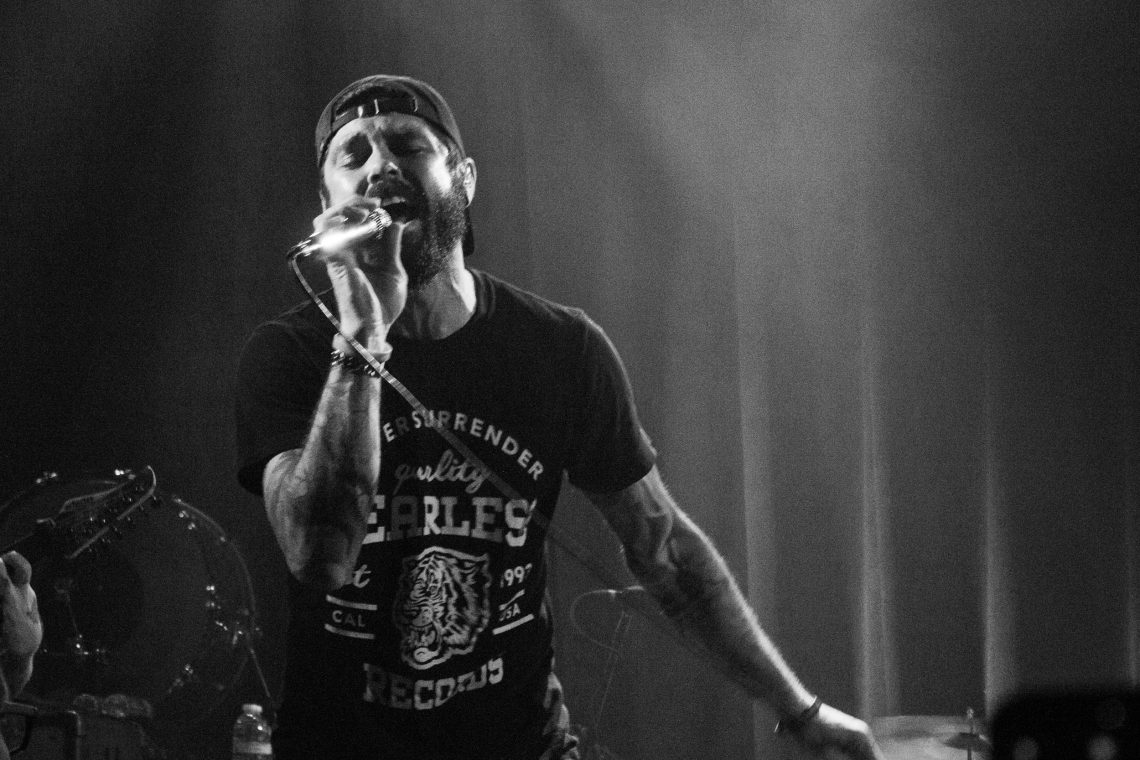
Capstan at The Troubadour 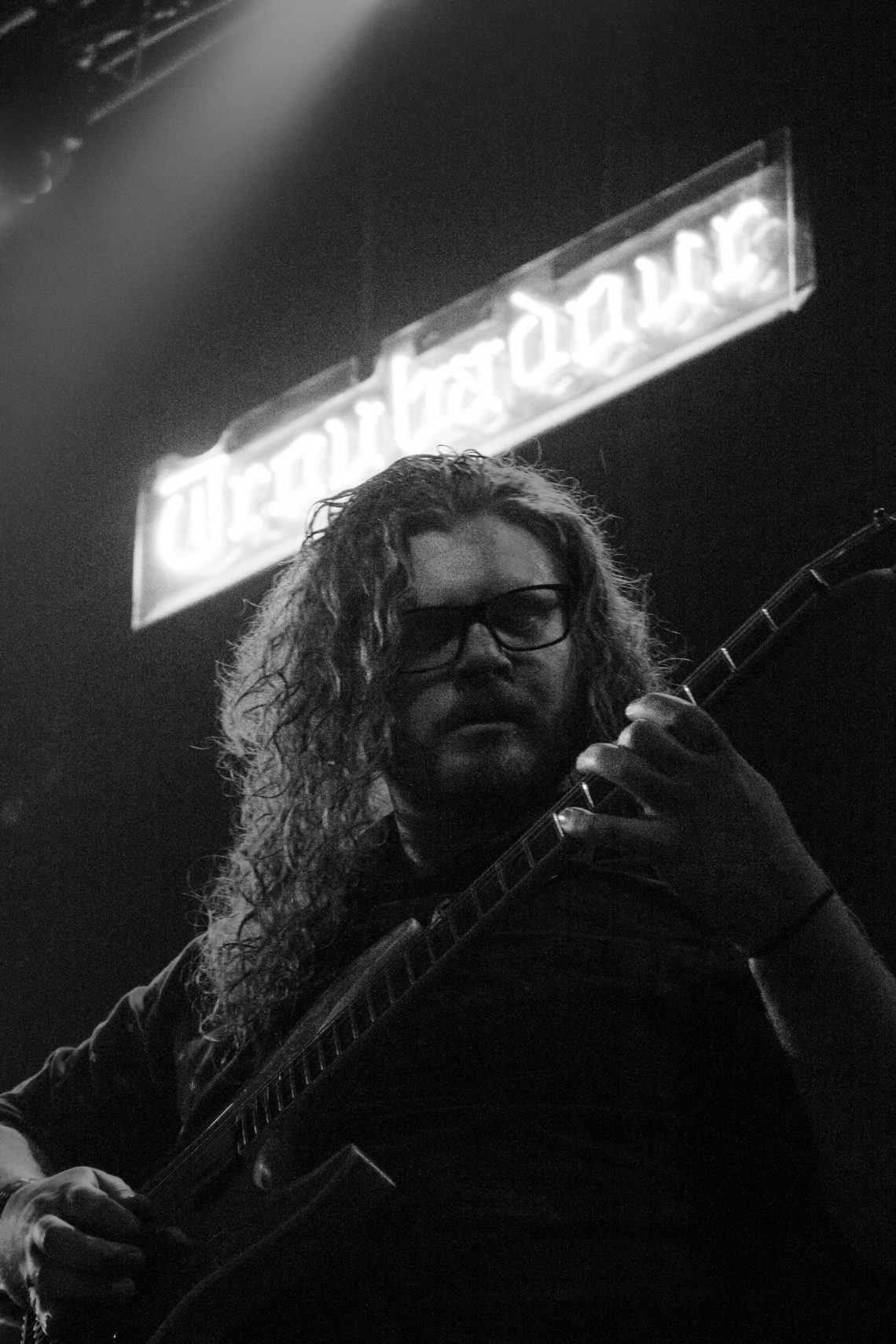
Capstan at The Troubadour 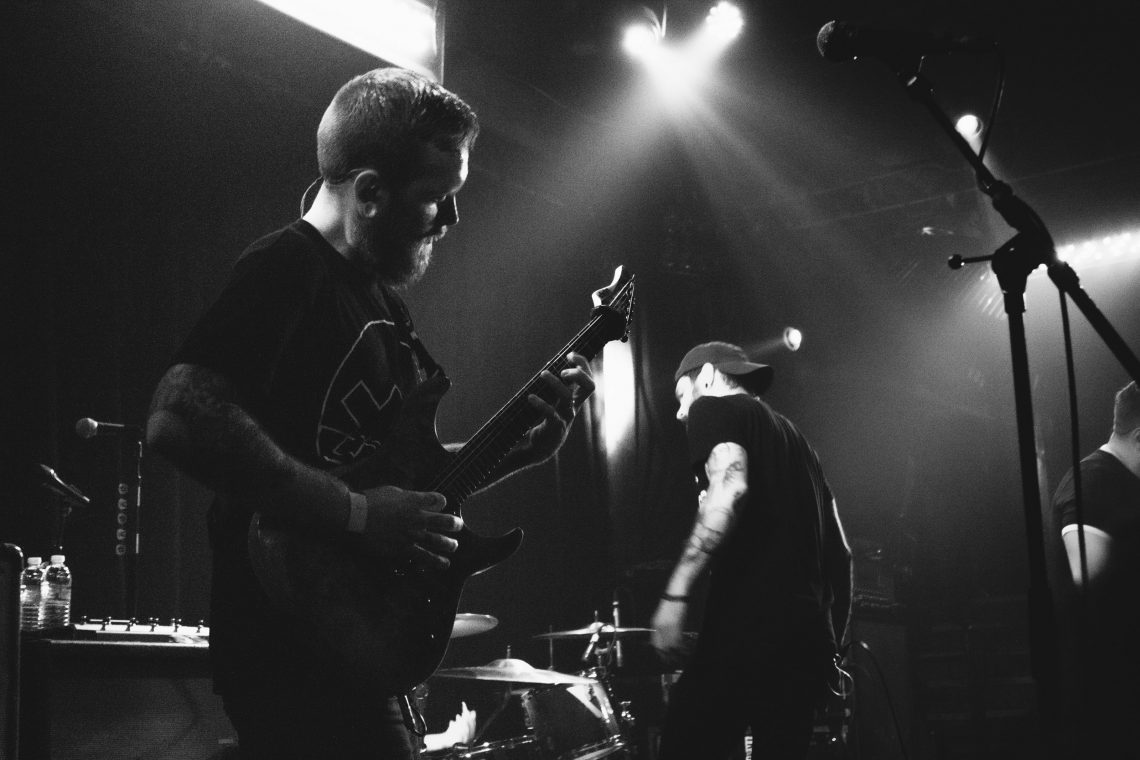
Capstan at The Troubadour
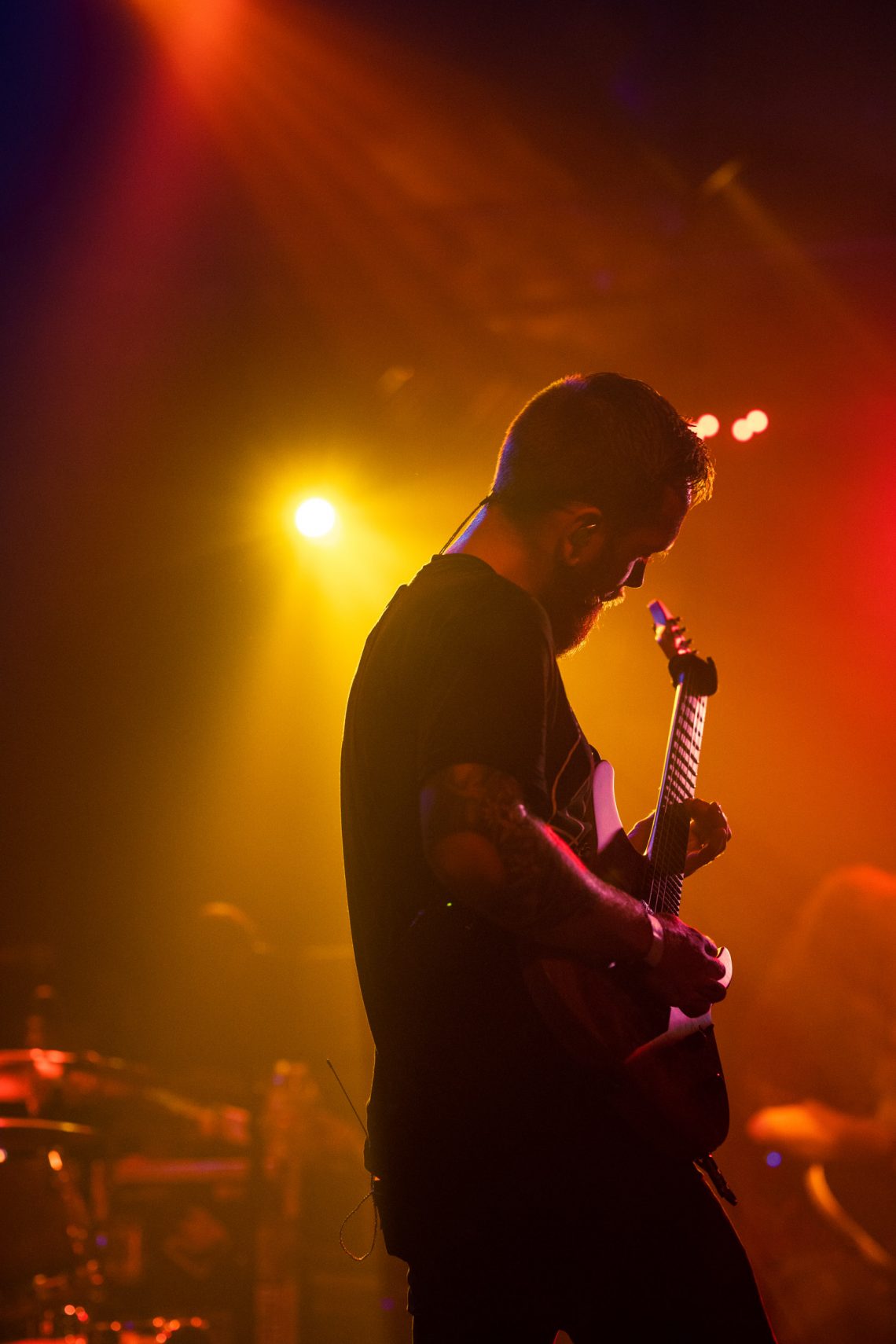
Capstan at The Troubador by Marisa 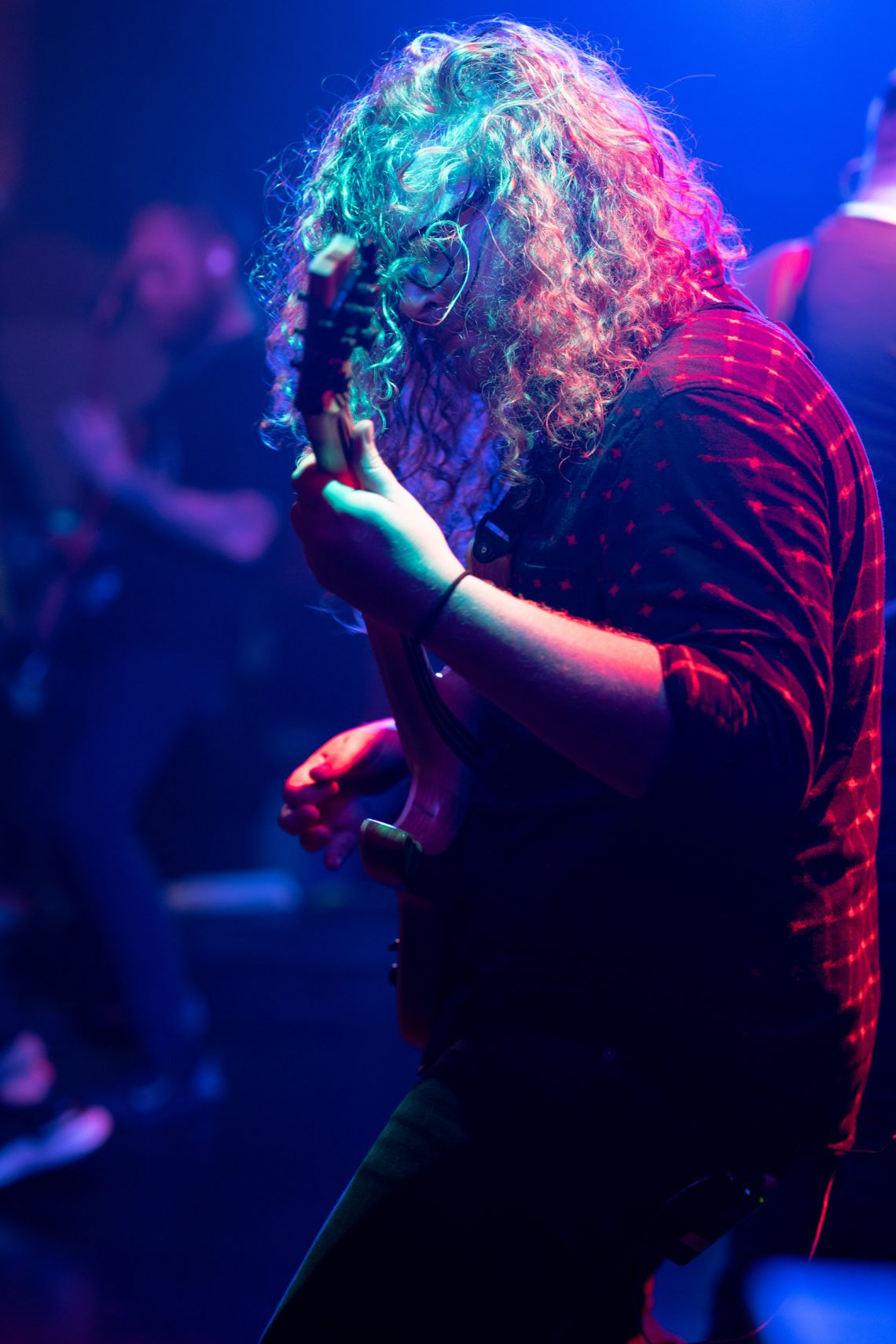
Capstan at The Troubador by Marisa 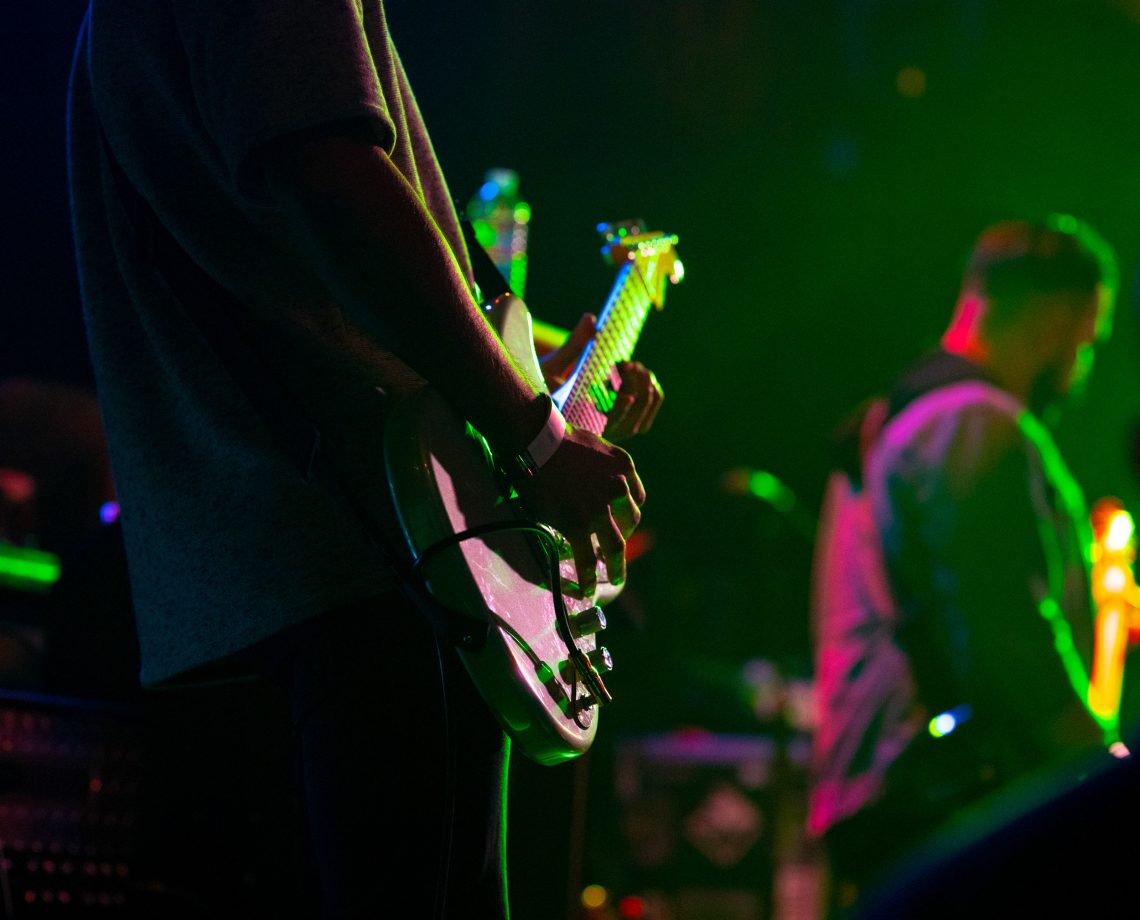
Calmgrove at The Troubadour by Marisa 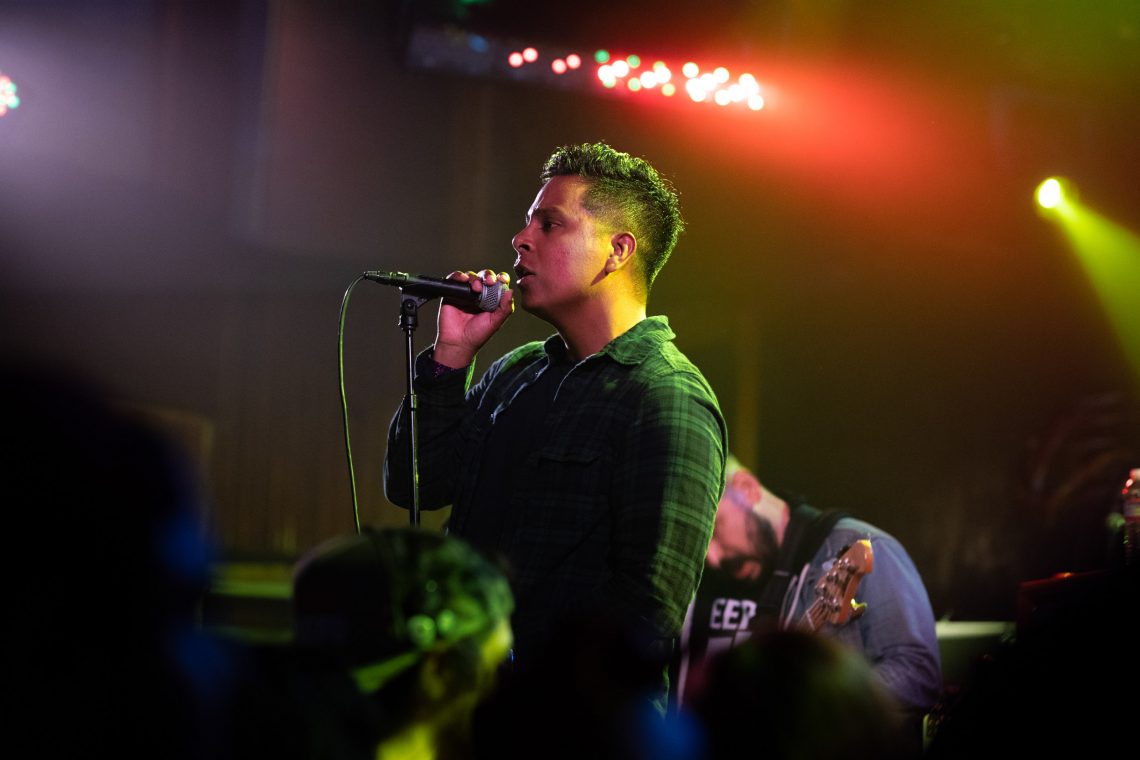
Calmgrove at The Troubadour by Marisa
More Pro, Better Gear
The more professional you get, the better the gear you will need. BUT getting better gear does not make you more professional. So focus on how you can improve on a day to day basis, and just work on that. One day at a time. Tackle this with a growth mindset and don’t worry about where you are at, just focus on moving forward and enjoying the process. If you are ever wondering when you should upgrade your gear – well I can help you with that too.
I hope this helped you, as much as it helped me. As always if you have any questions, just ask.
